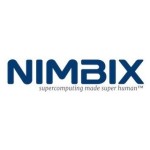Burak Yenier from the UberCloud gave this talk at the High Performance Container Workshop at ISC 2019. “This workshop will outline the current state of Linux Containers, what challenges are hindering the adoption in HPC/BigData and how containers can foster improvements when applied to the field of HPC, Big Data and AI in the mid- and long-term.”
Kmesh.io – Multicloud Lustre-as-a-Service
Vinay Gaonkar from Kmesh.io gave this talk at LUG 2019. “The need for cloud-based Lustre, he explained, is driven by both technological and business factors. In the end, this all adds up to a trend in which the cloud world is moving from heavy use of centralized data lakes to a much more flexible and responsive architecture of many smaller, distributed data ponds.”
Video: Kubernetes for Biomedical Analysis
Kevin Sayers from the University of Basel gave this talk at the hpc-ch forum. “The SIB Swiss Institute of Bioinformatics BioMedIT project is developing the computing infrastructure which will enable biomedical analyses on sensitive human data across multiple sites as part of the Swiss Personalized Health Network. This presentation will focus on our experience assessing Kubernetes to support these biomedical workloads, and the benefits it provides to researchers in the community.”
Sylabs boosts HPC Containers with SingularityPRO 3.1
Today Sylabs announced the release of SingularityPRO 3.1 in what the company is calling a watershed moment for enterprise customers everywhere. “SingularityPRO 3.1 is the most highly anticipated release of our enterprise software ever,” said Gregory Kurtzer, founder and CEO of Sylabs. “With this release, we’re rapidly advancing container science, making it a truly opportune time for those seeking to containerize the most demanding enterprise performance computing workloads in the most trusted way.”
Univa: Optimizing On-Premise Clusters and Migration to the Cloud
In this video from ISC 2018, Rob Lalonde describes how Univa products optimize on-premise clusters and migration to the Cloud. “Univa is the leading independent provider of software-defined computing infrastructure and workload orchestration solutions. Univa’s intelligent cluster management software increases efficiency while accelerating enterprise migration to hybrid clouds. We help hundreds of companies to manage thousands of applications and run billions of tasks every day.”
NVIDIA Releases Code for Accelerated Machine Learning
Today NVIDIA made a number of announcements centered around Machine Learning software at the Computer Vision and Pattern Recognition Conference in Salt Lake City. “NVIDIA is kicking off the conference by demonstrating an early release of Apex, an open-source PyTorch extension that helps users maximize deep learning training performance on NVIDIA Volta GPUs. Inspired by state of the art mixed precision training in translational networks, sentiment analysis, and image classification, NVIDIA PyTorch developers have created tools bringing these methods to all levels of PyTorch users.”
Nimbix Launches JARVICE 3.0 HPC Hybrid Cloud Platform with Kubernetes
Today cloud provider Nimbix announced the Technology Preview of JARVICE 3.0, a robust HPC hybrid cloud software platform fully integrated with Kubernetes. The new container platform is designed to provide the enterprise with access to the entire Nimbix self-service catalog of HPC, AI and machine/deep learning applications. Packaged as a new enterprise software tool, JARVICE 3.0 optimally runs supercomputing and HPC workloads on-premises or remotely on the public cloud.
Kubernetes as a Service Built on OpenStack
Saverio Proto from SWITCH gave this talk at the Swiss HPC Conference. “At SWITCH we are looking to provide a container platform as a Service solution. We are working on Kubernetes leveraging the Openstack cloud provider integration. In this talk we show how to re-use the existing keystone credentials to access the K8s cluster, how to obtain PVCs using the Cinder storage class and many other nice integration details.”
Altair Steps up to Azure Cloud with Inspire Unlimited
Altair software is now part of the Inspire Unlimited software-as-a-service offering available on the Azure cloud. “Unlike the HyperWorks Unlimited Appliance, where performance is based on the number of nodes, Inspire’s scale requirements are based on the number of simultaneous users; there could be 1,000 engineers working together at a time,” says Sam Mahalingam from Altair. “We felt that the HPC environment in Azure was architected to meet the type of back-end requirements we needed for Inspire.” Altair uses Microsoft Azure Virtual Machines, with NV instances powered by NVIDIA Tesla M60 GPUs.
Deploy Serverless TensorFlow Models using Kubernetes, OpenFaaS, GPUs and PipelineAI
Chris Fregly from PipelineAI gave this talk at the Stanford HPC Conference. “Applying my Netflix experience to a real-world problem in the ML and AI world, I will demonstrate a full-featured, open-source, end-to-end TensorFlow Model Training and Deployment System using the latest advancements with TensorFlow, Kubernetes, OpenFaaS, GPUs, and PipelineAI.”












